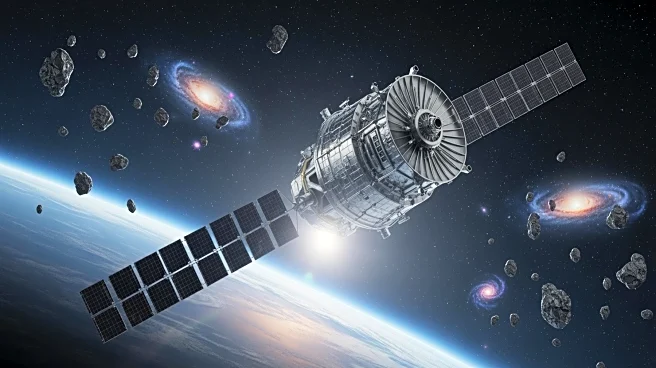What's Happening?
A mysterious metal object discovered in the Australian outback is believed to be debris from a Chinese rocket, according to Australia's space agency. The debris, found by mine workers near Newman, Western
Australia, consists of components made of carbon fiber and resembles a composite overwrapped pressure vessel used in rockets. The agency is conducting technical analysis to confirm the object's origin and is engaging with international counterparts to determine its exact nature. Space analyst Marco Langbroek noted the debris's similarity to rocket components, suggesting it may have fallen during a recent launch.
Why It's Important?
The discovery of rocket debris in Australia highlights the growing issue of space junk and its potential impact on terrestrial environments. As space exploration and satellite launches increase, the risk of debris falling to Earth poses challenges for safety and environmental management. This incident underscores the need for international cooperation in tracking and managing space debris to prevent harm to populated areas and ecosystems. It also raises questions about the responsibilities of space-faring nations in mitigating the risks associated with their activities.
What's Next?
The Australian space agency will continue its investigation to confirm the debris's origin and assess any potential hazards. This may involve collaboration with Chinese authorities and other international space agencies to ensure accurate identification and safe disposal of the debris. The incident could prompt discussions on enhancing global protocols for tracking and managing space debris, including improved monitoring systems and international agreements on debris mitigation.
Beyond the Headlines
The presence of space debris in remote areas like the Australian outback highlights the broader implications of space exploration on global environments. It raises ethical considerations about the impact of human activities beyond Earth and the need for sustainable practices in space exploration. The incident may lead to increased public awareness and advocacy for responsible space policies that prioritize environmental protection and safety.










